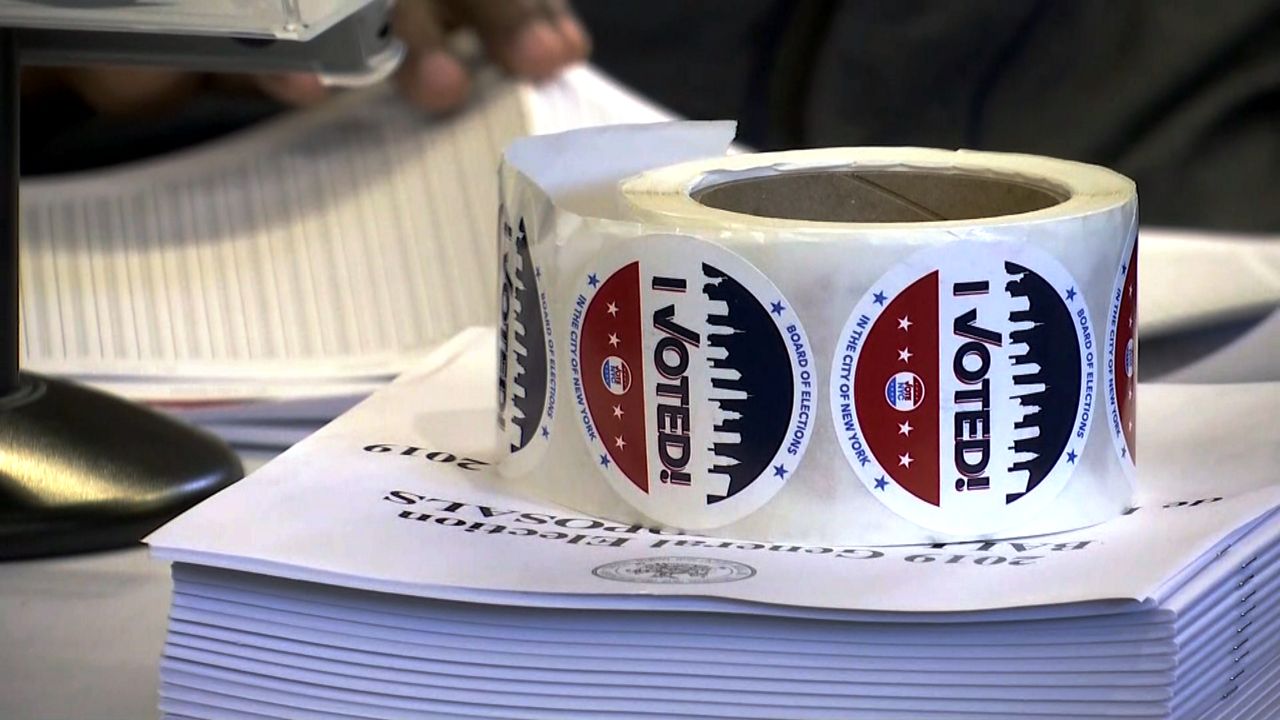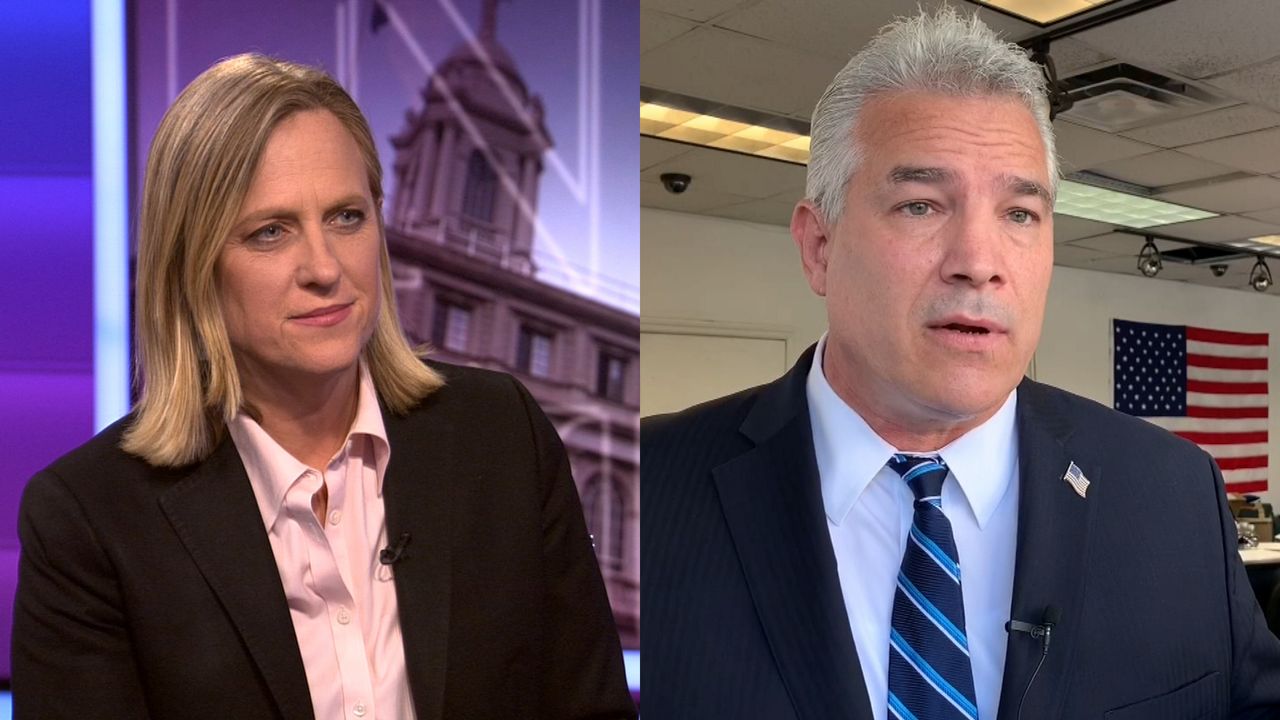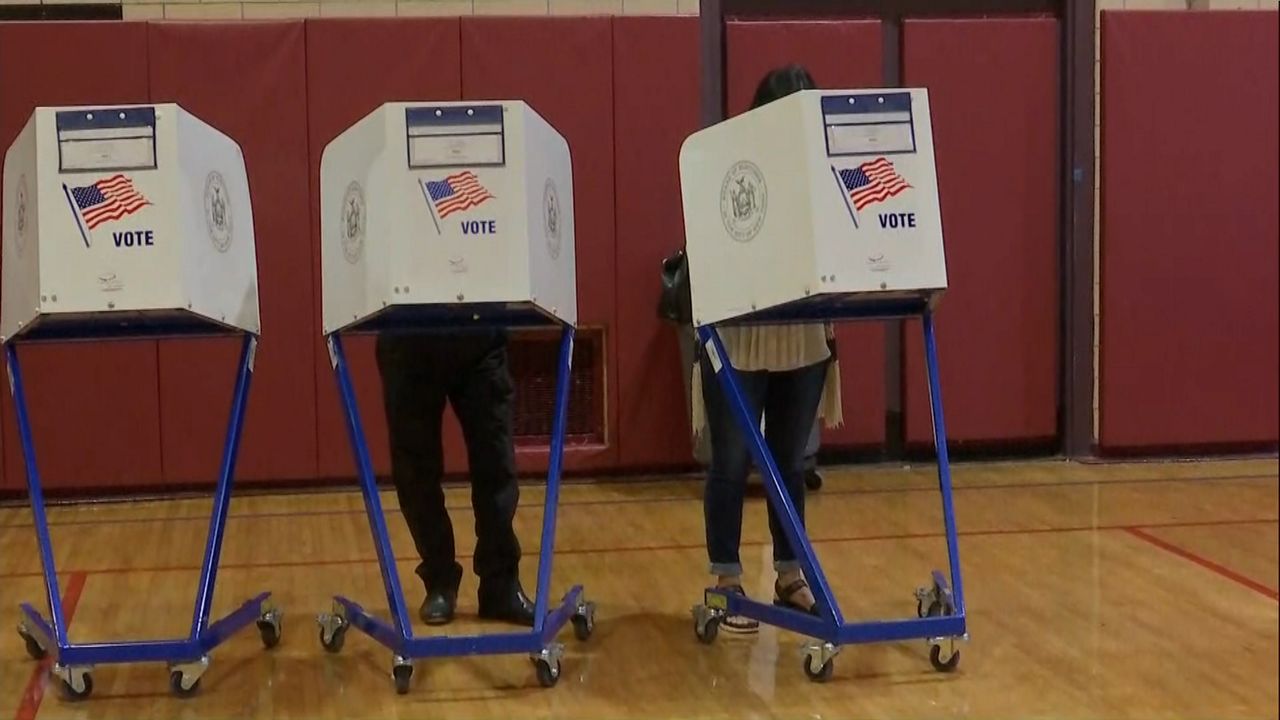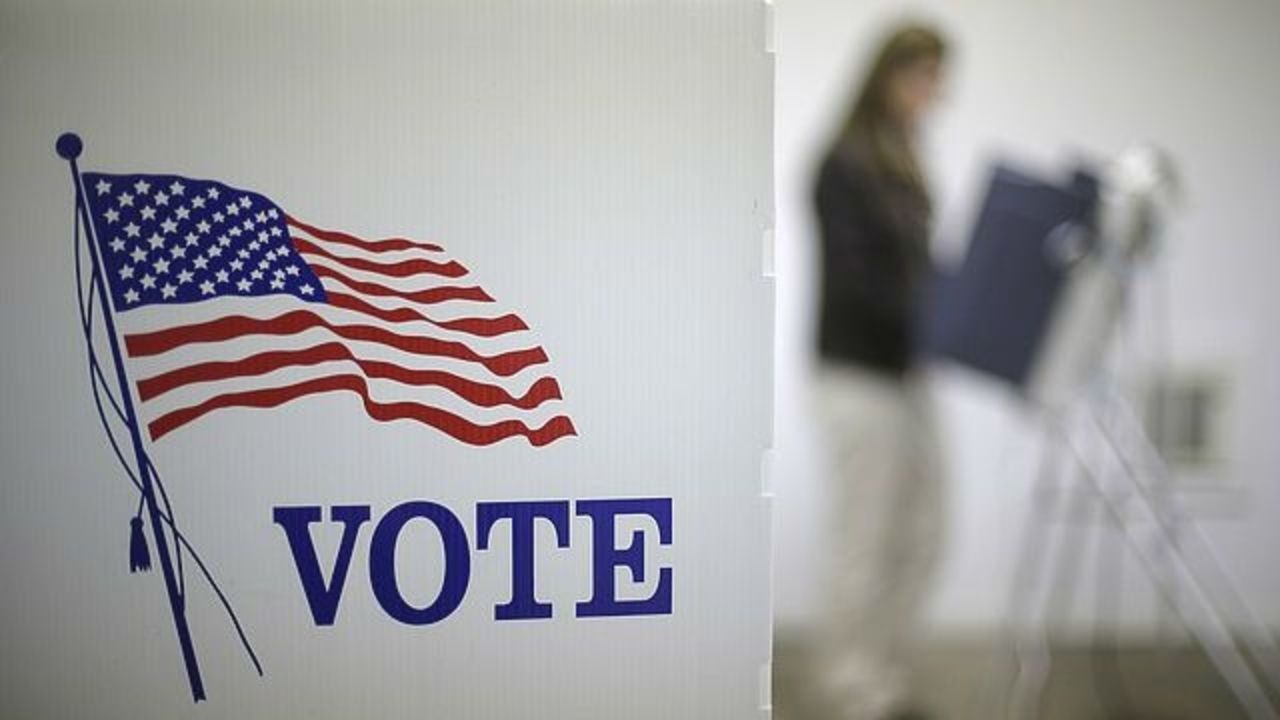New York City Board of Elections officials will conduct a full manual recount in the Queens district attorney Democratic primary after a paper ballot count Wednesday found Melinda Katz ahead of Tiffany Cabán, who declared herself the winner eight days ago, by 20 votes, sources told NY1.
ON TO A FULL RECOUNT
The Board of Elections finished the count of absentee and affidavit ballots around 9 p.m. The new razor-thin margin is well within the margin for a full automatic manual recount, which will start next week. A margin of victory below 450 votes (0.5 percent) in this race triggers an automatic manual recount. At this point, the Board of Elections is expecting to certify the final result July 16.
The race hasn't officially been called, but Cabán, a public defender, declared herself the winner after she held a lead of about 1,100 ballots (about 1 percent) among the roughly 81,000 votes cast in the primary June 25. It was touted as a major upset for the Queens Democratic Party, which supported Katz's candidacy.
But Katz, the Queens borough president, did not concede, demanding every ballot be counted. Board of Elections officials said there were around 6,337 ballots to be counted, more than half of them Democratic absentee ballots. The rest were affidavit votes.
Katz overcoming the margin was not viewed as likely; she needed to win an overwhelming majority of those absentee and affidavit ballots to win the election, on a ballot that includes six other candidates.
"We said from the beginning that every vote needs to be counted and that every voter needs to be heard, and now we see clearly why this must always be the case. I am proud to have been chosen as the Democratic nominee for Queens District Attorney," Katz said in a statement Wednesday night. "I look forward to having tonight's results affirmed in the coming days; and I am honored to be ready to serve as Queens' next District Attorney."
"Queens voters are inspired by Tiffany Caban's campaign and her vision for real criminal justice reform. If every valid paper ballot vote is counted, we are confident we will prevail," Cabán's campaign said in a statement.
ON TO A LEGAL FIGHT
A significant change in the vote count was expected to lead to a legal dispute; Cabán's lawyer filed a lawsuit Tuesday as a precautionary measure.
"We do that as a prophylactic," Jerry Goldfeder said, "Just to make sure that in case there are disputes, there's a judge ready to resolve them."
Sources close to Cabán's campaign say they will argue in court that the 2,294 affidavit ballots thrown out should be restored. Earlier Wednesday, the Board of Elections confirmed that number of affidavit ballots that were tossed out.
THE STATE OF THE RACE
The candidates for Queens DA had been debating how to implement criminal justice reforms becoming popular around the United States, such as ending cash bail and reducing jail populations — and they debated how far the policies should go.
The next Queens district attorney will enter an office that had been occupied for nearly three decades by Richard Brown, who passed away earlier this year.
Katz was arguably viewed as the frontrunner in the race because she had the support of most of the Queens Democratic Party and many labor union endorsements, but she faced a spirited challenge from Cabán, who seemed to gain momentum late in the primary season. Cabán earned the endorsements of several prominent progressives, such as New York Rep. Alexandria Ocasio-Cortez, Philadelphia DA Larry Krasner, Senators Bernie Sanders and Elizabeth Warren, and the New York Times endorsed her. Cabán also got a late boost in donations — more than $233,000 in a three-week span before the primary, compared to Katz's $172,000.
The initial election results sent shockwaves through the city's political establishment and garnered the 31-year-old public defender national headlines.
WHERE DOES CABÁN STAND ON THE ISSUES?
Cabán could potentially move the Queens district attorney far to the left in her bid to overhaul criminal justice policies. While all her primary opponents advocated for less punitive action against people charged and convicted of crimes, Cabán has arguably supported policies that are further to the left:
Ending Cash Bail:
Cabán supports the end of cash bail for any offense, arguing it is representative of income inequality in the city. She says the Queens DA's office can check in with defendants to ensure they return to court.
Conviction Integrity Unit:
Like most of her opponents, Cabán promised to establish a Conviction Integrity Unit for Queens, but she has called for taking it a step further and clearing convictions and releasing people for crimes that are no longer being prosecuted.
Marijuana:
Cabán says she wouldn't prosecute any recreational drug use if it doesn't pose a threat to other people, not just recreational marijuana use.
Closing Rikers:
Like many of her opponents, Cabán supports closing Rikers Island quickly but does not give the ok to new jails, arguing they always become overcrowded. She opts, instead, for decarceration.
Sex Work:
Arguably Cabán's position that is furthest to the left, she supports the full decimalization of sex work, saying sex workers are victims and need the employment because they face economic inequities. Cabán says she would instead focus on targeting sex traffickers. None of her primary opponents supports full decimalization, instead calling for not prosecuting sex workers and instead targeting traffickers, pimps, and those who solicit them.
Cabán has been trying to fend off accusations from her opponents — perhaps seeing her strong social media presence and growing media attention — that she was unqualified because she hadn't prosecuted criminal cases.
WHERE DOES KATZ STAND ON THE ISSUES?
Katz faced criticisms that she wasn't progressive enough to reform the Queens DA's office, especially compared to Cabán, who espoused some far-left policies, such as decriminalizing sex work. Katz, however, supported mostly liberal positions:
Ending Cash Bail:
Katz supports not asking for cash bail for any offense, arguing the DA could remand a repeat offender or those charged of more serious crimes.
Conviction Integrity Unit:
Like most of her opponents, Katz promised to establish a Conviction Integrity Unit for Queens that would be independent from anyone involved in the original cases. Katz has said she would consult defense attorneys and community leaders to determine what cases should be reviewed.
Marijuana:
The borough president said she would not prosecute low-level marijuana offenses.
Closing Rikers:
Katz supports closing Rikers Island quickly but does not support opening a new jail in Kew Gardens, arguing the city's plan has not solicited enough input from the neighborhoods.
Sex Work:
And Katz says she supports not prosecuting sex workers and instead targeting traffickers, pimps, and those who solicit them.
WHAT HAPPENS AFTER A WINNER IS DECLARED?
Whoever wins will advance to the November general election, which the Democrat is expected to win.
What does a newsroom do when an election is too close to call?
------
Looking for an easy way to learn about the issues affecting New York City?
Listen to our "Off Topic/On Politics" podcast: Apple Podcasts | Google Play | Spotify | iHeartRadio | Stitcher | RSS









